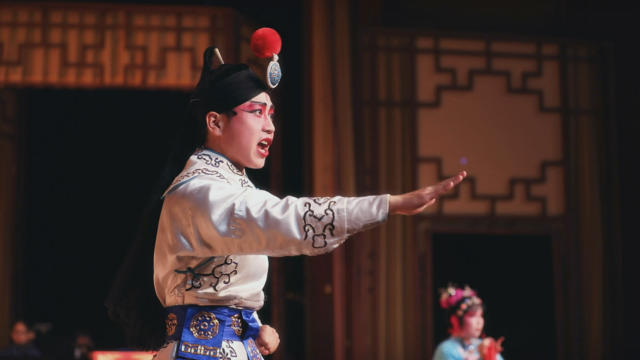The Mandarin term “xiqu” translates to “Chinese Opera” in English, but it is not the type of classical European opera that most Westerners are familiar with.

Xiqu incorporates singing, dancing, combat and theatrical performance to create rich narratives. It is the primary form of indigenous Chinese theater and the only major genre of theater in existence in China prior to the twentieth century (with its origins traced back to as early as the third century BC). Mastery of the art form requires discipline and decades of study. But these demands haven’t deterred graduate students at the University of Hawaii at Manoa from embracing xiqu wholeheartedly.
While conducting field research for her doctoral dissertation in the late 1970’s, Professor Elizabeth Wichmann-Walczak became the first non-Chinese person to perform jingju (the form of xiqu that developed in Beijing) in China. Today, with the help of visiting xiqu masters from China, she leads an intensive jingju training program at the University of Hawaii at Manoa. The program is offered to graduate students in the theater department and culminates in a public performances of a major xiqu play in English, translated and directed by Professor Wichmann-Walczak.

Full Frame caught up with the Professor Wichmann-Walczak and her students as they staged the 2018 production of xiqu in Hawaii.

 CGTN America
CGTN America
